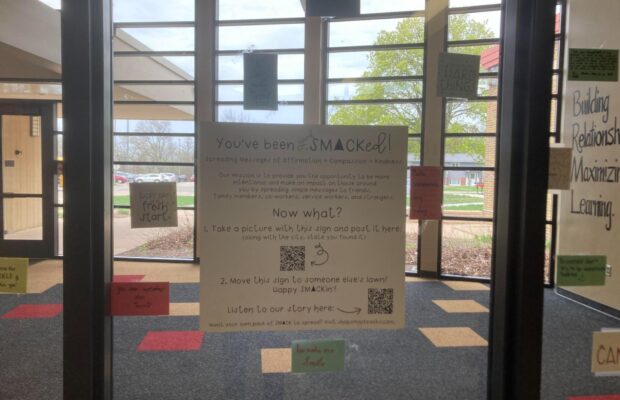Our View | Gene project shows infinite potential
Most of the time, when you see E. coli in the news, it’s not a good thing. The gene synthesis project termed “Syn61” is an exception.
Pioneered by biologist Jason Chin, Syn61 is the largest synthetic genome that has ever been created with four million genetic letters and over 18,000 replaced stop codons. It’s called Syn61 for the number of codons used to make its amino acids: 59, rather than the 61 codon structure preferred by nature.
The project was based on Chin’s 2016 research, in which he laid out specific methods of recording the genome. Chin divided E. coli’s four million base pairs into 37 sections and then systematically synthesized and replaced each section. Syn61 grows at 40 percent the rate of natural E. coli, but the fact that it’s growing at all makes Chin’s work revolutionary.
Chin didn’t just copy the genome—he altered it, and he did so brilliantly. Every gene was changed in some way, and yet the E. coli remains alive. This makes Syn61 different from every other form of life on earth.
With most organisms, it’s possible to swap genes, because they all work from the same basic framework. But if a virus attempted to infect Chin’s work, the cell wouldn’t be able to interpret the virus’s DNA and the infiltration wouldn’t be possible.
Recoding a genome throws life off of nature’s beaten path and presents humanity with a challenge: can we improve upon life? Can we make it? To most people, the idea of creating life is limited to childbirth. But with Syn61, it’s expanded. It opens up the possibility of creating and improving upon the formula for life as we know it.
A recoded gene can do things that, up until now, have been pure science fiction. It could make enzymes and proteins we haven’t even pictured. It could become impervious to viruses. It could pave the way for a new generation of pharmaceuticals.
These potential advances in science are infinite and endless, but because of Chin’s Syn61, they are no longer impossible.
Correction: In the last issue, we misspelled a name in the article “Junior explores electricity interests, wins free trip.” The last name ‘Leistcow’ was mispelled. The correct spelling is ‘Leistikow.” We deeply apologize for the mistake.









You must be logged in to post a comment Login